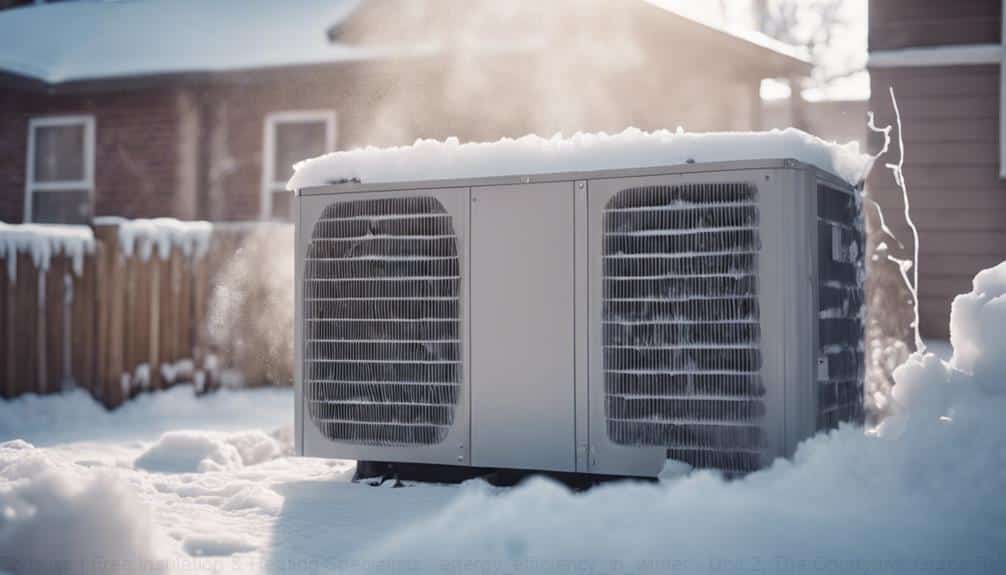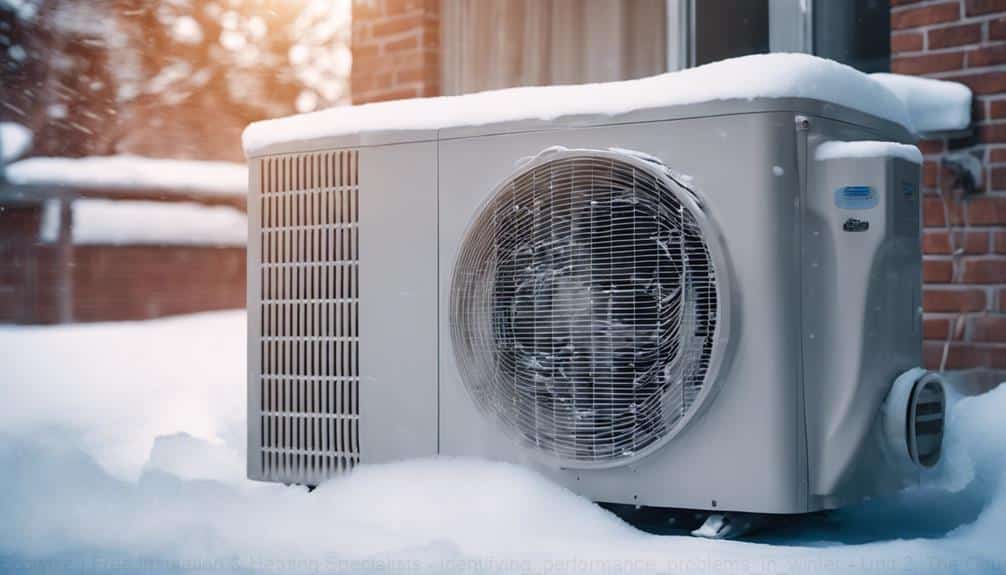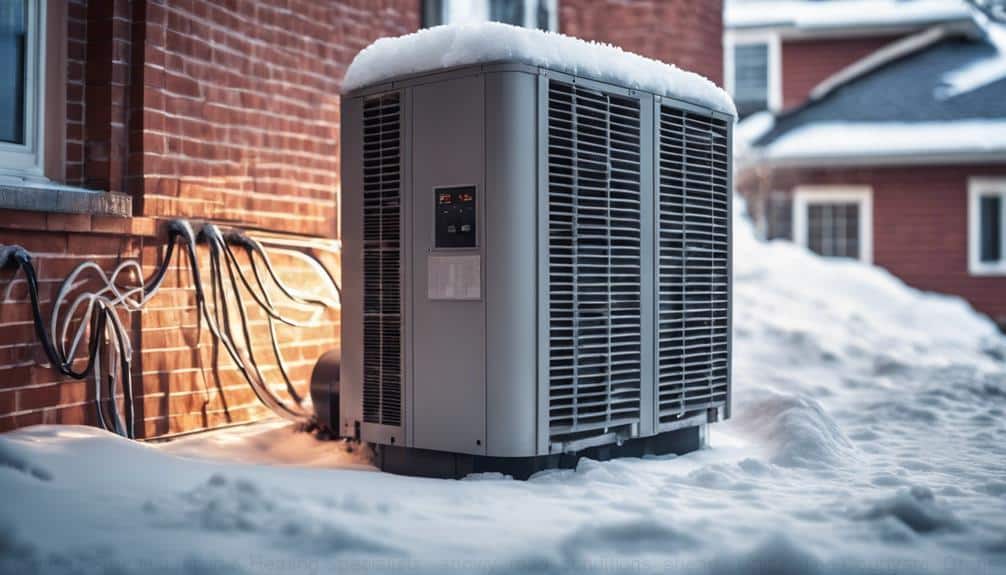Winter weather poses challenges for heat pumps, including reduced energy efficiency and increased energy consumption. To address these issues, defrosting methods and proper insulation are crucial. Cold climates can affect performance, requiring defrosting strategies and regular maintenance.
Anti-freeze features and maintenance checks are necessary as heat pumps are susceptible to freezing. Winter maintenance tasks such as cleaning filters and testing backup heat sources are essential. Understanding these challenges and taking proactive measures are key to ensuring optimal heat pump performance in winter.
Table of Contents
ToggleReduced Energy Efficiency in Cold Weather

In cold temperatures, heat pumps can become less energy efficient, affecting their performance. To address this issue, employing defrosting methods like reverse cycle defrosting or hot gas defrosting is crucial.
Accumulated frost on heat pumps during operation in cold weather can decrease their effectiveness. Proper insulation of the heat pump and its surroundings helps minimize heat loss and improves overall efficiency.
Impact of Freezing Temperatures
In freezing temperatures, heat pumps face challenges affecting efficiency and performance. Energy consumption increases as heat pumps extract heat from the environment, requiring temperature regulation to heat spaces effectively.
Reduced efficiency and struggle to maintain indoor temperatures occur in freezing temperatures, leading to higher energy consumption. Heat pumps may experience frequent defrost cycles, further impacting performance.
Proper maintenance and protection measures are crucial to mitigate freezing temperature effects on heat pump operation.
Performance Issues in Winter Conditions

In winter conditions, heat pumps face challenges that affect their performance and efficiency. To address these issues effectively, consider the following strategies:
- Implement defrosting strategies to ensure peak performance.
- Enhance thermal insulation around the heat pump to prevent heat loss.
- Schedule regular maintenance checks to promptly address performance issues.
- Monitor the temperature closely to optimize settings for improved efficiency in cold weather.
Vulnerability to Freezing in Cold Climates
In cold climates, heat pumps are at risk of freezing due to frigid conditions. Preventing ice formation within the system is crucial to maintain heat pump functionality.
Cold climate adaptations, like anti-freeze features and proper insulation, are essential for efficiency and longevity during winter.
Ground source heat pumps are resilient in cold weather and often have built-in mechanisms to prevent freezing.
Adequate airflow and proper refrigerant levels help mitigate air source heat pumps' vulnerability to freezing temperatures in colder regions.
Winter Maintenance Challenges

Strategic planning and proactive measures are essential for managing the maintenance demands of heat pumps during the winter season.
To ensure peak performance, it is crucial to:
- Regularly check and clean air filters.
- Schedule professional inspections to detect and address potential issues early.
- Test the backup heat source for functionality in case of pump failure.
- Implement preventative measures such as installing anti-freeze protection to avoid freezing during winter operation.
Frequently Asked Questions
Can Heat Pumps Operate Efficiently in Extremely Cold Climates?
Efficient operation of heat pumps in extremely cold climates faces challenges due to decreased energy efficiency. Winter weather significantly impacts heat pump performance, especially in severe cold conditions. To enhance efficiency, consider utilizing ground source heat pumps or implementing anti-freeze protection for air source models.
How Do Heat Pumps Handle Freezing Temperatures?
In freezing temperatures, heat pumps prevent ice buildup by defrosting, which increases energy consumption. Backup heating supplements heat pump operation in extreme cold to maintain warmth when temperature limitations are reached.
What Happens to Heat Pump Performance During Winter Storms?
Snow accumulation and ice formation during winter storms can reduce heat pump performance. These conditions impede heat exchange, diminishing the system's heat absorption and transfer capabilities, potentially causing operational issues.
Are Heat Pumps More Prone to Freezing in Colder Regions?
In colder regions, heat pumps can experience ice buildup, leading to freezing and necessitating defrost cycles. Essential maintenance includes anti-freeze protection and backup heat sources to prevent operational issues in winter.
What Maintenance Steps Are Crucial for Heat Pumps in Winter?
Regular winter maintenance for heat pumps includes checking refrigerant levels, cleaning filters, and ensuring proper airflow. Efficiency tips involve setting a consistent temperature, using a programmable thermostat, and considering a backup heat source in case of extreme cold.



